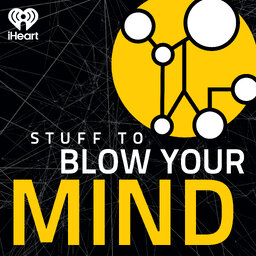Before You Could Remember, Part 1
Our personal memories only extend back so far in life, and before that, there is a void. Why don’t we remember our early childhood and what does it say about human memory, childhood development and cultural ideas about infants? Robert and Joe explore in this episode of Stuff to Blow Your Mind…
In 1 playlist(s)
Stuff To Blow Your Mind
Deep in the back of your mind, you’ve always had the feeling that there’s something strange about re…Social links
Follow podcast
Recent clips

Crab Bag, Part 3: The Crab is a Lonely Hunter
55:55

Weirdhouse Cinema Rewind: La Loba (1965)
1:30:07

From the Vault: Mystery Cults, Part 4
1:00:23
 Stuff To Blow Your Mind
Stuff To Blow Your Mind